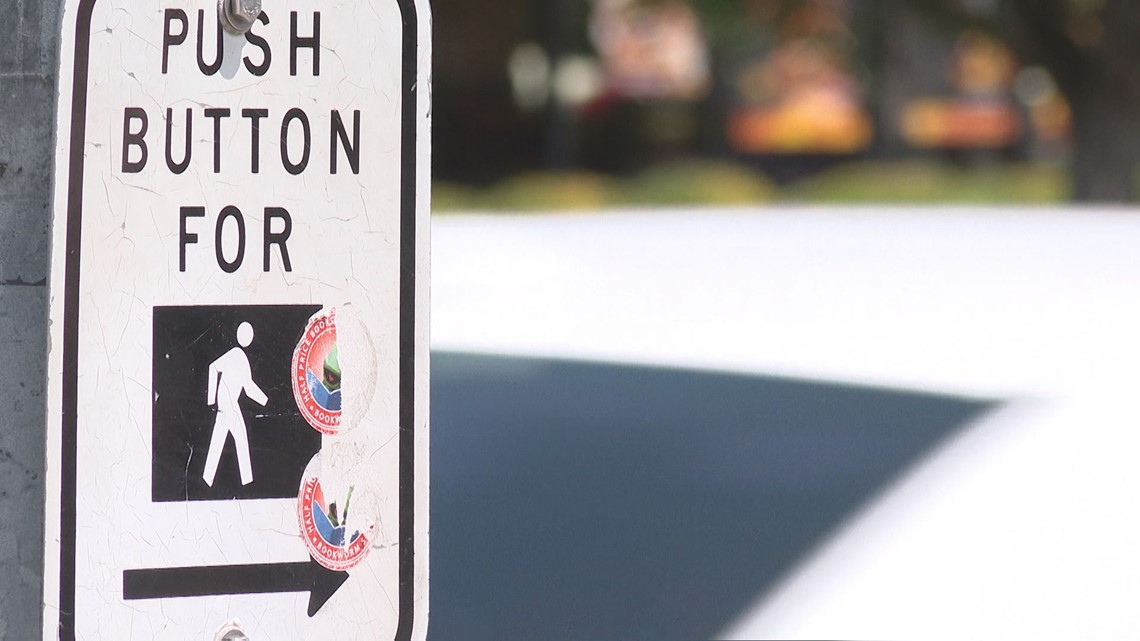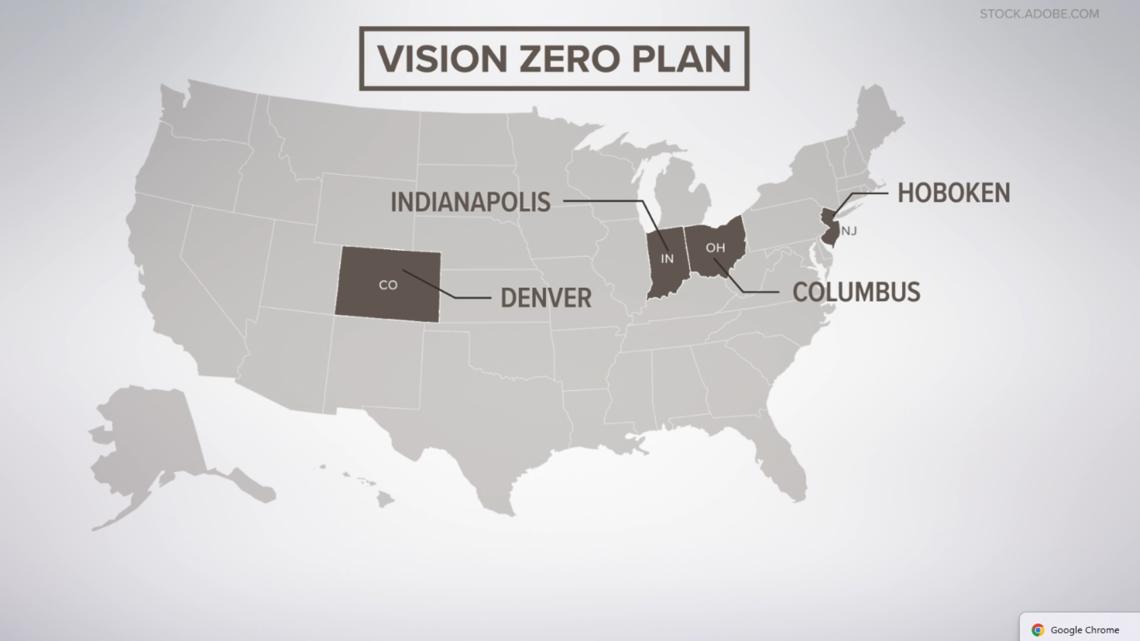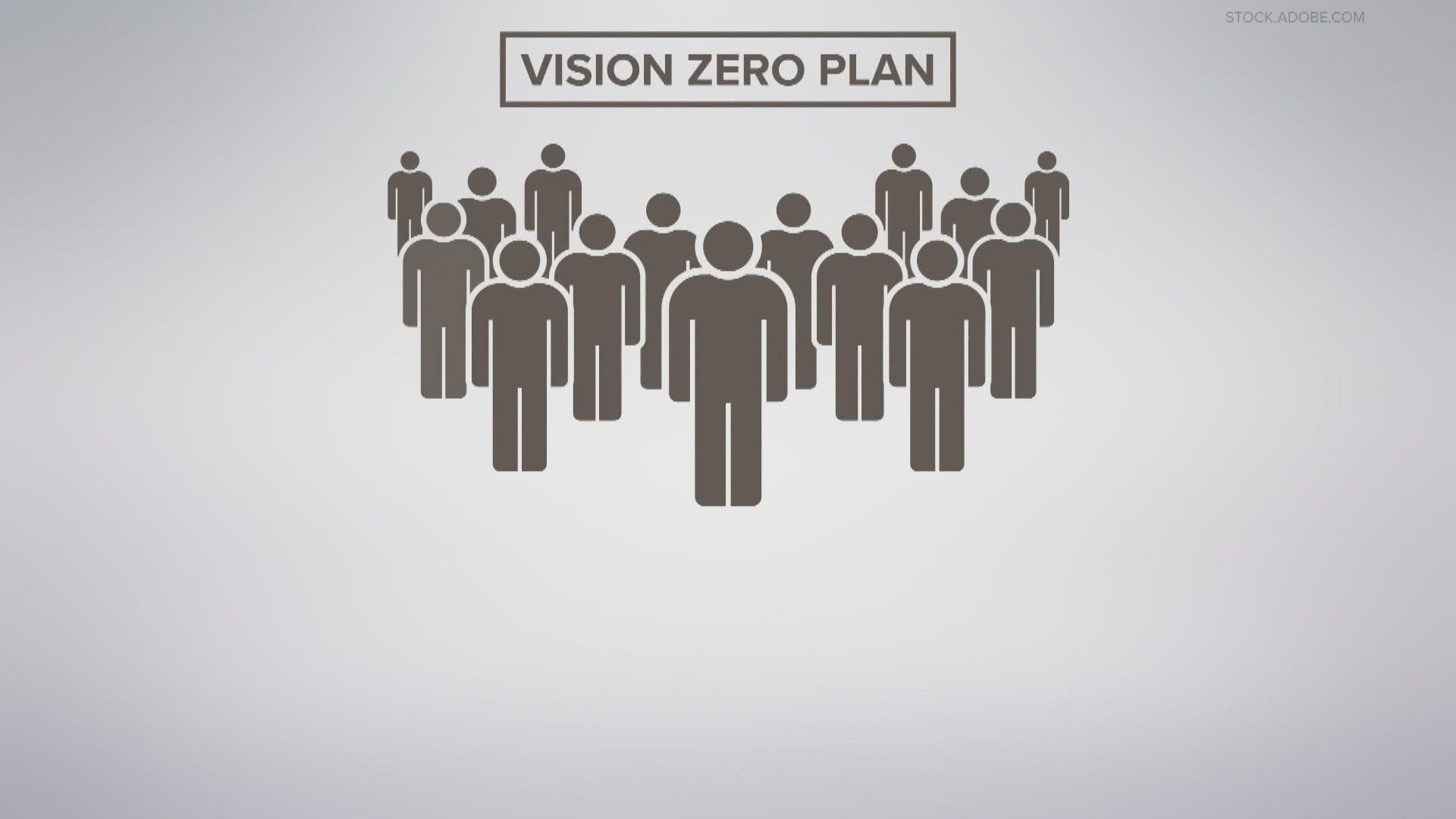INDIANAPOLIS — After years of consideration, a “Vision Zero” proposal is now in front of the City-County Council. It looks to eliminate traffic deaths and severe injuries in Marion County by 2035.
The proposal would establish a 15-member task force to come up with a plan and gather community input.
As Indianapolis waits for the green light, several other cities are already hitting the gas when it comes to “Vision Zero.”
Just take a look at cities like Columbus, Ohio, Denver, Colorado and Hoboken, New Jersey. All of them have found ways to improve road safety through infrastructure upgrades, policy changes and community input.


For example, in Columbus, they launched a Vision Zero plan in 2021 and an updated version in 2023.
Their goal is to reach zero traffic-related fatalities by 2035, similar to Indy.
One thing the city did was lower the downtown speed limit to 25 mph. A year later, the city said fatal and serious crashes were cut in half.
Columbus leaders also redesigned dozens of intersections and updated crosswalks.
According to data from the Ohio Department of Public Safety, the number of pedestrian and cyclist deaths in Columbus are slowly trending down but are still in the double digits.


Erin Synk, vice president of “Yay Bikes!” in Columbus, said she is starting to see a culture shift in her city after the implementation of Vision Zero.
“The metrics on serious injury crashes and deaths have not come down in a way we would like to see, but the ingredients are there to get us there. We still have a lot of work to do,” Synk said.
Over in Hoboken, New Jersey, they have gone seven consecutive years without a traffic-related death. It is one of the few cities in the country to reach such a milestone.
The city also is seeing a decline in traffic-related injuries, with a 62% reduction in people getting seriously hurt.
Councilor John Barth said Indy is learning from both cities. He even visited Columbus himself last summer.
“I was really inspired by what they have been doing, so I’m using their work as a model for our work here in Indianapolis,” Barth said.
The Indianapolis proposal will now head to the Public Works Committee. They plan to discuss it on July 18. There will also be time for public comment.

